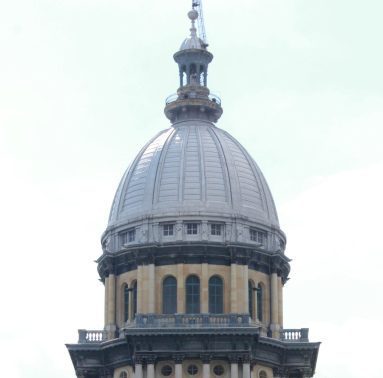Established in 2021 by SB815, the Commission on Equitable Public University Funding charged with researching, modeling, and ultimately recommending specific criteria and approaches for an equity-based higher education funding model for Illinois’ public universities. Click here to Learn more about the passage of SB815 and creation of the Commission.
In an effort to raise awareness about these public meetings and their progress, the Coalition for Transforming Higher Education Funding will share meeting recaps as soon as possible following each of the Commission’s remaining meetings.
During the April 22 virtual convening of the Commission on Equitable Public University Funding, members continued to discuss matters pertaining to creating an equitable funding model in Illinois. Commissioners deliberated how to collectively define what equitable, adequate, and stable funding will mean moving forward and introduced new plans for two working groups to help advance the work. As part of the Commission’s continuing research, the group heard presentations regarding Louisiana and Colorado’s funding models and paid close attention to how they addressed equity in their plans.
Prior to the February meeting of the Commission, commissioners completed a survey where they set definitions for equitable, adequate, and stable funding. For the April meeting, Representative Carol Ammons led a discussion on the results of a follow-up survey given to commissioners to help ensure they have a shared language and understanding of key terms as they move toward the next phases of the commission. Commissioners planned to finalize and hold a formal vote on these definitions at the group’s May meeting.
Working Groups Proposed
The Commission also discussed preliminary plans to establish two working groups, focused on adequacy and technical modeling. The adequacy group will focus on scope, resources, and conceptual frameworks,while those in the technical modeling group will focus on metrics, data analysis, modeling, and distribution approaches. The Commission co-chairs, Senate Majority Leader Kimberly Lightford, Ammons, IBHE Chair John Atkinson, and Deputy Governor for Education Martin Torres, will select members for each of the groups prior to the next meeting. Ammons There is also the possibility that additional groups or subgroups will be formed, if needed to move the working groups forward.
More State Models Presented
As part of the Commission’s charge to review funding models used in other states, Commissioners spent a significant part of the meeting learning about funding models implemented for Louisiana and Colorado public universities. Dr. Kim Hunter Reed, Commissioner of Higher Education on the Louisiana Board of Regents, and Kaycee Gerhart, Director of Government Affairs at Metropolitan State University of Denver delivered presentations showing how their states are addressing stark inequities in degree completion along racial and income lines through reforming how funding is distributed.
As Louisiana works to reach its 60 percent postsecondary attainment goal for all state residents by the year 2030, Hunter Reed said the state has been taking actions to make its public universities more accessible and affordable including by allocating more funding to institutions through an outcome-based model that it began implementing in 2019. Hunter Reed shared that the Board of Regents plans to analyze and track degree completion and successful outcomes at state-funded institutions and among underrepresented student populations.
Gerhart shared how Colorado revised its 2014 funding model to help institutions more equitably serve specific student populations by targeting more funding to colleges and universities serving first-generation students and other underrepresented populations. The revision of the model came as part of the state’s ongoing work to increase degree attainment to 66 percent by 2025.
Following the presentations from Hunter Reed and Gerhart, commissioners discussed the importance of ensuring equity and historical context remain at the forefront of Illinois’ eventual funding model for its public universities. Sheila Caldwell, Vice President for Anti-Racism, Diversity, Equity and Inclusion and Chief Diversity Officer for the Southern Illinois University System, discussed the need for this focus in order to right the wrongs of the past and increase equity in higher education.
Commissioners also discussed what an equitable “hold harmless” provision could look like in Illinois, with concerns it could lead to prolonged inequity if implemented without additional investments into the system. Zaldwaynaka Scott, Esq., President of Chicago State University, said that the Commission must look at past disinvestments in higher education to ensure Illinois’ model addresses these historical inequities. Women Employed President and CEO Cherita Ellens said that in order to work toward equity, Illinois’s higher education system would need substantial reinvestment. Until a level of adequate and equitable funding is reached, she recommended that the bulk of new funding be prioritized for institutions that are disproportionately serving students of color and students from low-income backgrounds.
The Commission plans to continue this discussion in the next meeting and hear about Tennessee’s model for funding its public institutions.

In the journey to the July 2023 deadline when the Commission makes its recommendations to the state, public comment about the urgent need for an adequate, equitable, and stable funding model for Illinois’ public universities will be crucial.
Please join the next commission meeting on May 25 in order to have your voice heard on this issue. In the meantime, you can also share this tweet and discuss why you believe higher education matters in Illinois on social media.

